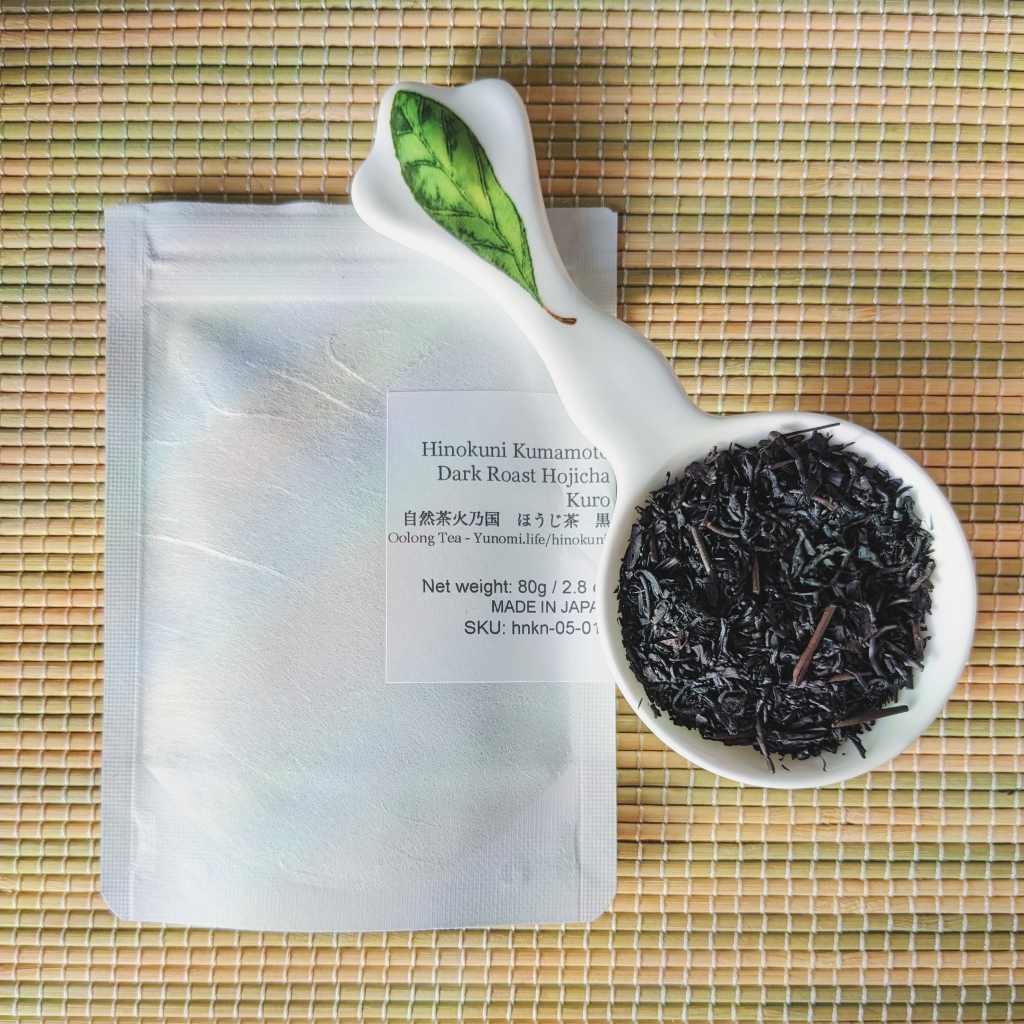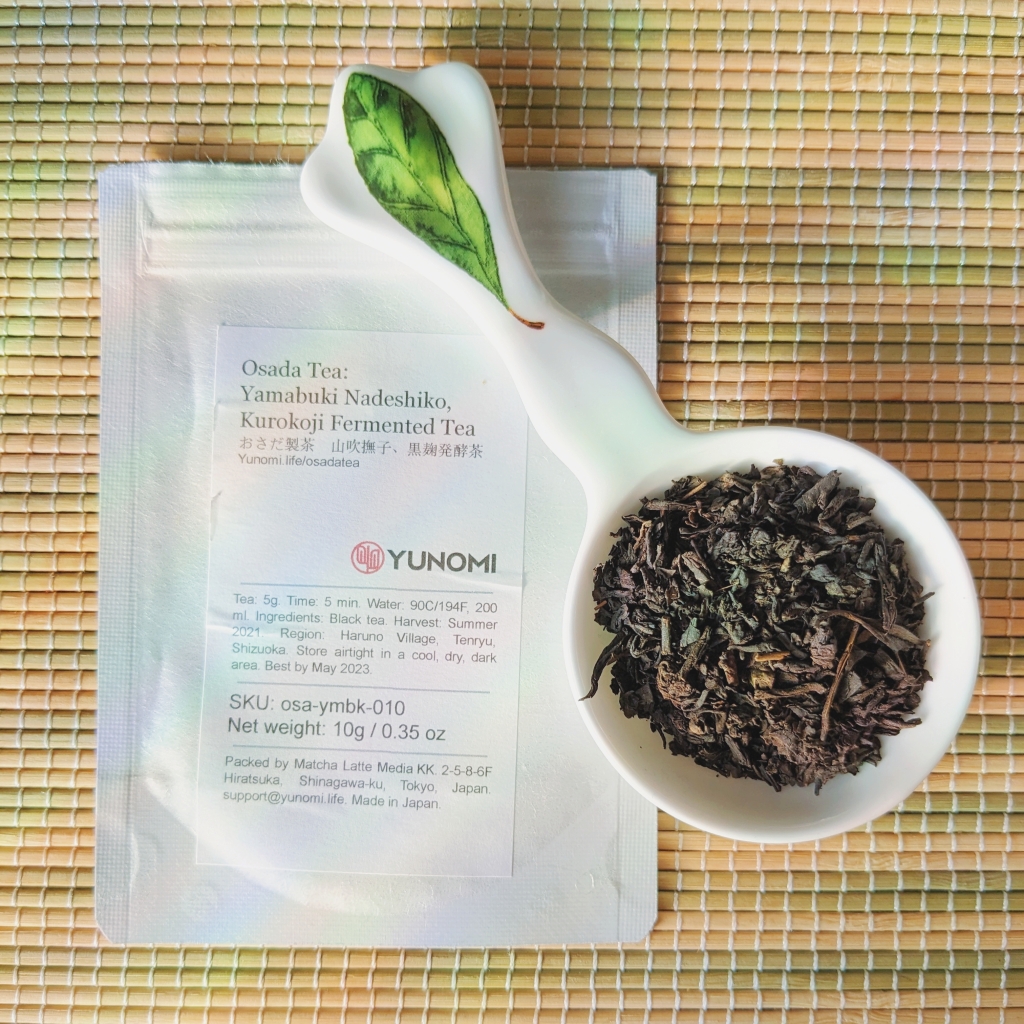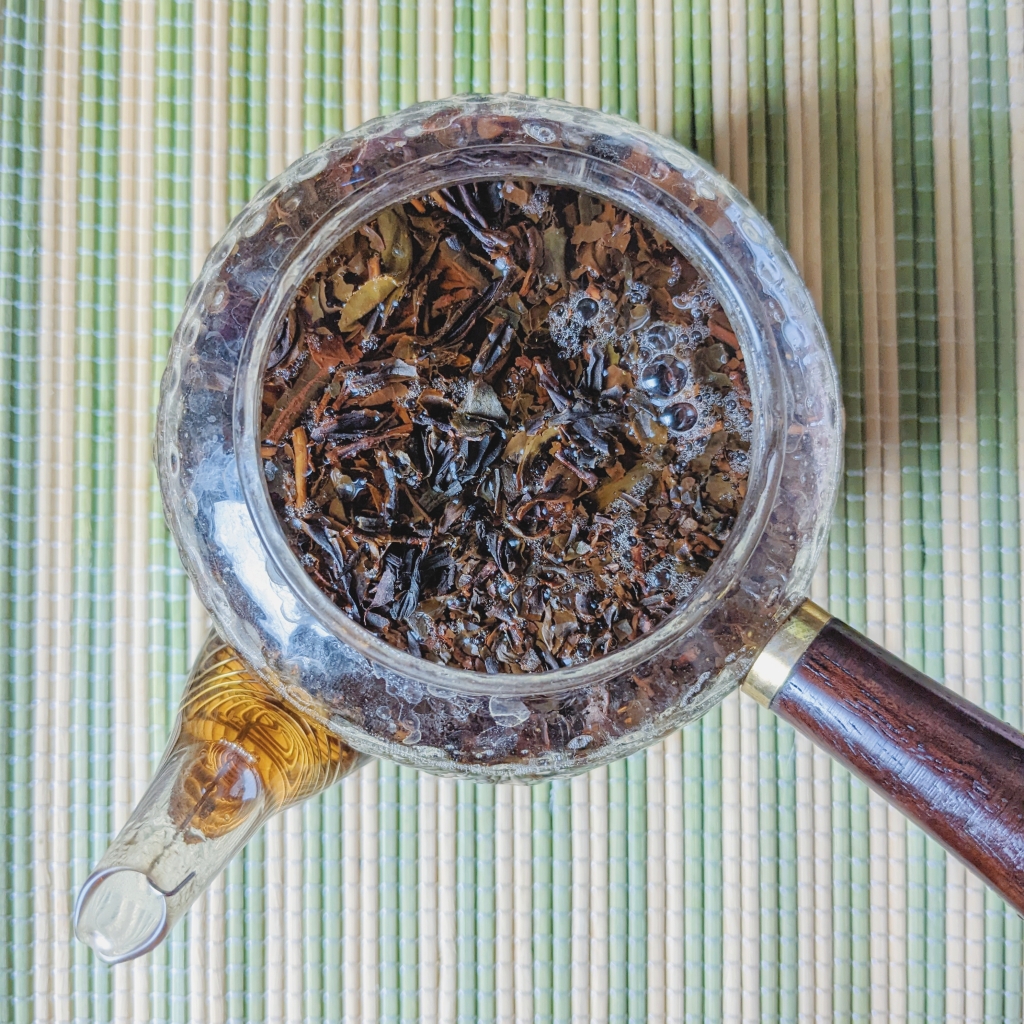We are well and truly into the autumn season here in the UK and winter is approaching fast, so just like almost every other tea lover out there I have been reaching for my autumn and winter teas. You may think that this is the one time of year I probably step away from Japanese tea and reach for others, but that is not the case at all. There are so many Japanese teas out there that are perfect for staying cosy during autumn and winter.
A lot of people overlook Japanese tea when it comes to this time of the year because the majority of people know Japanese tea as purely just green tea, but there is much more variety within the world of Japanese tea than you might think. They have undoubtedly mastered green tea in every way shape and form, but you shouldn’t overlook other teas from Japan because of this. So for todays post I thought I put together a list of Japanese teas and tisanes that are perfect for this time of the year, in hopes that it will lend a helping hand to someone out there who is yet to explore the world of Japanese tea fully.
All of the teas & tisanes I’ll be including in todays post were all purchased* via Yunomi Tea.


Of course, we have to start off this list with Hojicha. Whether in loose leaf or powder form, this roasted green tea (often made up of tencha and stems) is the perfect winter warmer. Because it comes in different forms, it is incredibly versatile and pairs well with a multitude of other flavour profiles. For the autumn and winter if you are going to have loose leaf hojicha i highly recommend reaching for the darker roasted ones for the most roasty toasty comforting goodness.
Personally, my favourite thing to do with powdered hojicha is to make a hojicha latte with a pinch of nutmeg and cinnamon to up the level of roasty toasty cosy vibes and a little brown sugar for added sweetness and depth. However if you are looking for a sweet treat, I recommend adding a heaped teaspoon of hojicha powder into hot chocolate. It works well with both milk chocolate and white chocolate, but I wouldn’t recommend doing it with dark chocolate as it would overpower it completely. With loose leaf hojicha, I don’t tend to do anything with it, I simply have it on it’s own. You can use loose leaf in different drinks but with loose leaf hojicha you have to use quite a lot to get the strength at that right level, so I wouldn’t recommend it.

Sannen Bancha is a 3-year aged bancha product that was developed for the macrobiotic industry as a natural way to reduce caffeine in tea as much as possible. The one I have been enjoying this year is produced by the Tarui Family. To produce this tea, they take autumn harvested (yabukita) bancha stems, separate them from the leaves and store them in their warehouse (in Nearaicho, Shizuoka Prefecture) for three years. After those three years have passed, the stems are then roasted to further reduce caffeine and impart a slightly roasted flavour.

Osada Tea: Yamabuki Nadeshiko Kurokoji Fermented Tea – Now this is a completely new to me tea that I only tried for the first time very recently as I have a mushrooms allergy and I’m having to be very careful and slow when it comes to trying fermented teas. This tea is created at Osada Tea’s clean room facility, where a patented kurokoji fermentation starter is mixed into leaves grown organically from the farmers of the Isagawa Tea Coop in Haruno Village (in the mountains of the famed Tenryu district of western Shizuoka).
This is such a unique tea and I can’t believe that it has taken me thing long to find out about it. As always I’m incredibly thankful to Yunomi tea for consistently stocking their website with such a great amount of variety and shining the spotlight on the lesser know (to the west) teas and tisanes. I have learnt so much about Japanese tea thanks to them.
It’s a slightly sour tea but it’s also surprisingly fruity, with notes of dried strawberry and earthy tones are also present. There is no astringency or bitterness and for a fermented tea this is such an easy drinker. Besides it’s flavour profile, this tea also has an overall warming effect on the body so it’s perfect for the colder months.

If you haven’t tried Japanese black tea before now, the autumn winter season is the perfect time to change that because the distinct qualities of the flavour profile of Japanese black tea fit the season so well. For example, almost every Japanese back tea I’ve had has had notes of sweet potatoes in it’s flavour profile which is something I have only ever found in Japanese black teas. They are also always so incredibly smooth and easy to drink as well. Yes, they have classic black tea elements as well but they provide such a unique experience, and it saddens me that Japanese black teas are so overlooked when compared to black teas from other areas of the world.
A Japanese black tea I have been enjoying recently I would recommend for the autumn/winter season is: Ogura Tea Gardens: Yabukita Wakocha. This is a first flush black tea from Ashigara, Kanagawa. In fact I would even go as far to say that its one of the best wakocha’s I’ve ever tried, with notes of bakewell tarts, thinly sliced almonds, cherries, dark woods, sweet potatoes, pumpkin and more. It has one of the most complex flavour profiles of any Japanese black tea I’ve tried and I can’t recommend it highly enough.

I could keep adding suggestions to this list endlessly but I don’t want to bore you with an incredibly long post so I’ll leave my other recommendations here at the end of the post in the form of honourable mentions; Japanese oolongs that are on the higher end of the oxidation like this organic oolong from Takeo Tea Farms I’ve been sipping on recently. When it comes to tisanes, reach for things like sobacha and the herbal version of batabatacha. Really, when it comes to this time of the year you can’t go wrong with any tea or tisanes that is roasted or has those roasted elements within its flavour profile.
You’ll also want to reach for teas that are on the higher end of the oxidation scale that have those deep woody and earthy notes. black teas and oolongs are your best bets, but if they are your cup of tea, fermented teas (most of which give a warming effect of the body) are great for those super cold days where you just cant seem to keep yourself warm.

If you think I’ve missed anything off of this list and have your own recommendation, let me know in the comments. I’m always looking to try new teas and tisanes so I’m open to any recommendations. As always if have any questions about any of the teas or tisanes mentioned in this post send them to me on Instagram or TikTok and I’ll do may best to answer them.
If you do go on to place an order with Yunomi Tea use my code INFKKYU to get 1000 yen off of a purchase of at least 5000 yen.
Until next time. Happy Steeping – Kimberley
*all tea featured were purchased using a gift card provided to me me buy Yunomi Tea for the purpose of content creation. However all opinions are my own and have not been paid for*
Leave a comment